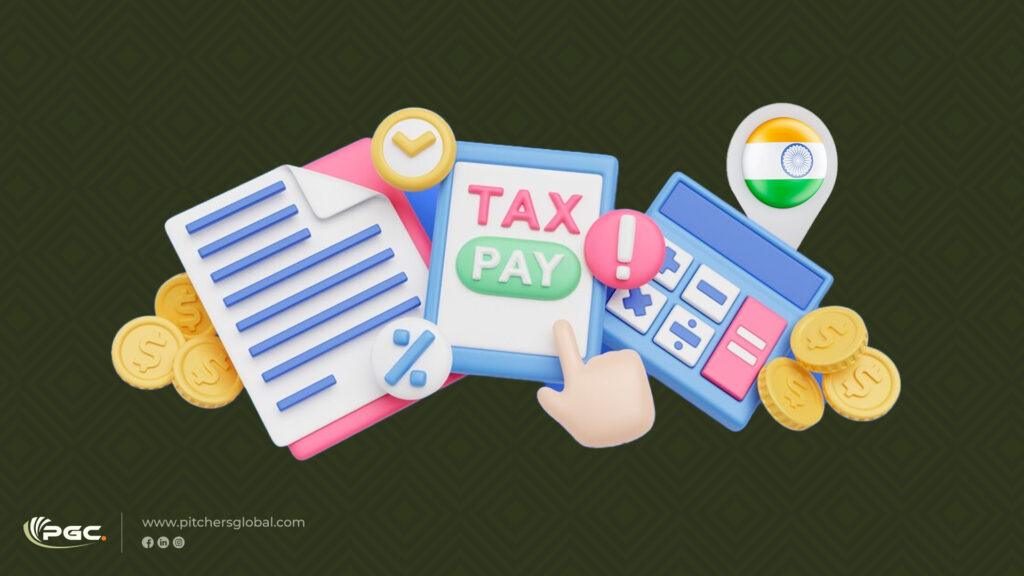Filing Income Tax Returns (ITR) is a vital aspect of every taxpayer’s financial responsibility in India. While many believe it’s only mandatory if one’s income surpasses the basic exemption limit, there are several circumstances where filing an ITR becomes obligatory, even if one’s income falls below the exemption threshold.
In this article, we will outline these scenarios, discuss the consequences of not filing ITR, and emphasize the significance of complying with tax laws.

Obligatory Situations for Filing Income Tax
Situations for Filing ITR
Savings Bank Deposits Exceeding ₹50 Lakhs: Individuals with annual savings bank deposits exceeding ₹50 lakhs across one or more accounts are mandated to file an ITR.
Current Account Deposits of ₹1 Crore or More: If an individual deposits ₹1 crore or more in one or more current accounts during the financial year, filing an ITR becomes mandatory.
Annual Sales Turnover Above ₹60 Lakhs: Individuals having an annual sales turnover surpassing ₹60 lakhs are obligated to file an ITR.
Professional Income Exceeding ₹10 Lakhs: Individuals whose professional income exceeds ₹10 lakhs during a financial year are required to file an ITR.
Electricity Bill Exceeding ₹1 Lakh: Filing an ITR is compulsory for individuals whose electricity bill surpasses ₹1 lakh during the year.
TDS/TCS Exceeding ₹25,000 (₹50,000 for Senior Citizens): If the Tax Deducted at Source (TDS) or Tax Collected at Source (TCS) exceeds ₹25,000, filing an ITR is mandatory. However, for senior citizens, this threshold is ₹50,000.
Income from Foreign Assets: Individuals possessing assets in foreign countries or benefiting from assets in foreign jurisdictions must file an ITR.
Expenses on Foreign Travel Exceeding ₹2 Lakhs: Individuals spending ₹2 lakhs or more on foreign travel for themselves or others during the financial year are required to file an ITR.
Consequences of Not Filing ITR by the Due Date (31st July 2024):
Late Fee Structure: A late fee of Rs. 1,000 is imposed on income up to Rs. 1,00,000. For income exceeding Rs. 5,00,000, the late fee increases to Rs. 5,000.
Interest Charges (Section 234A): Taxpayers are liable to pay interest at a rate of 1% per month or part thereof. Interest accrues from the day following the ITR filing due date (31st July).
Legal Implications
Non-filing of ITR may have severe consequences: Non-filing of ITR may be considered as tax evasion by tax authorities. Potential consequences include imprisonment ranging from 6 months to 7 years.
Loss Carry Forward Eligibility: Failure to file ITR on time disqualifies taxpayers from availing the benefit of carrying forward losses.
Situations for Filing Income Tax – Conclusion
Timely filing of Income Tax Returns is not only a legal obligation but also crucial for avoiding financial penalties and legal repercussions. Taxpayers must adhere to the prescribed deadlines to fulfill their tax obligations and maintain compliance with tax laws. Ignoring the requirement to file ITR, even if income falls below the basic exemption limit, can lead to hefty fines and legal troubles.
Understanding the obligatory situations for filing ITR is essential for every taxpayer to navigate the complexities of the Indian tax system effectively. Therefore, it is advisable to seek professional guidance to ensure compliance and avoid potential issues.
By fulfilling our tax obligations, we contribute to the nation’s growth and development.
Pitchers Global or PGC provides the best solution when it comes to income tax return obligations that helps you navigate the complexities of filing ITR properly and adhere to the Indian Tax Laws.
